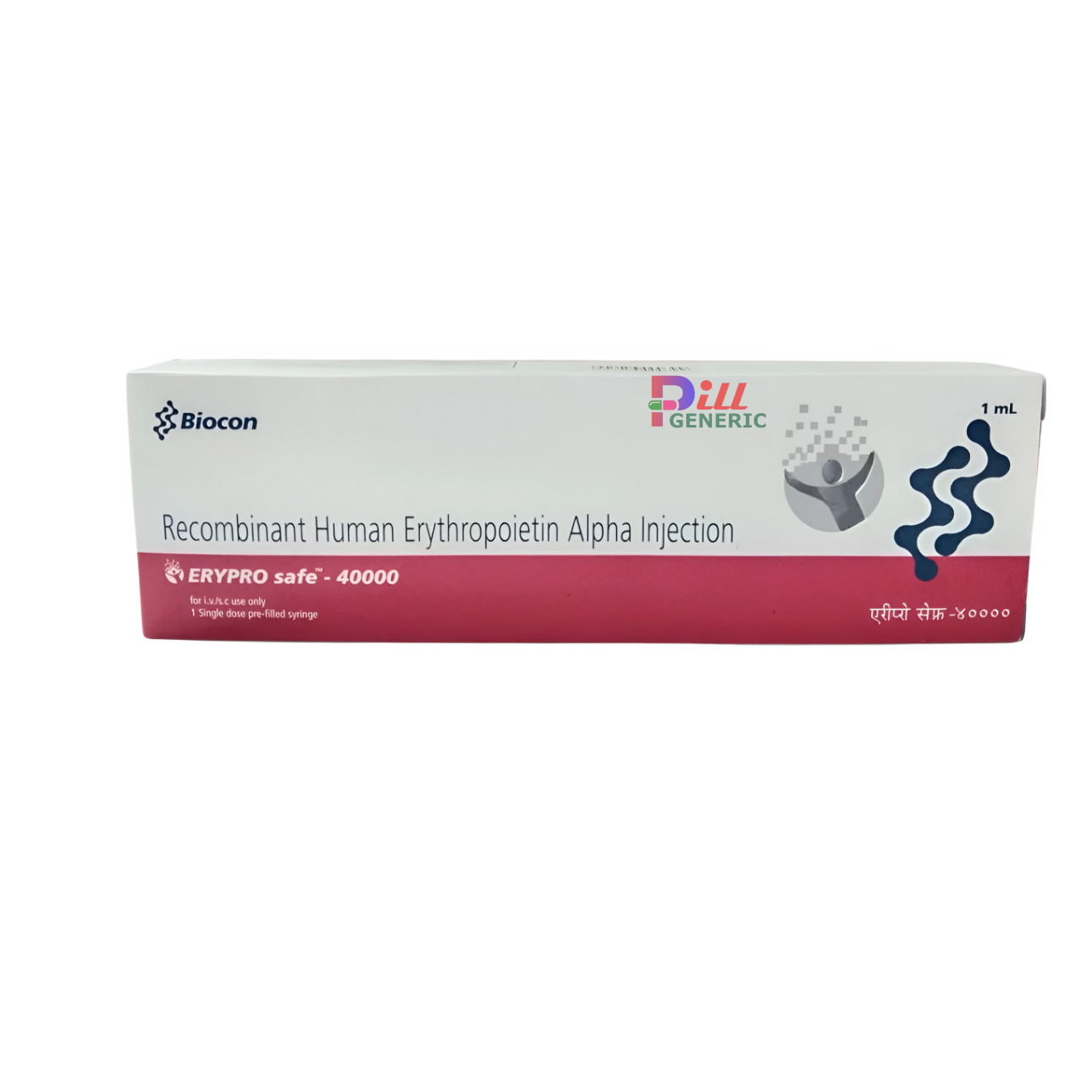Erythropoietin Injection is a medication used to treat anemia caused by certain conditions, such as chronic kidney disease (CKD), chemotherapy-induced anemia, or anemia associated with HIV treatment. It contains erythropoietin, a hormone that stimulates the bone marrow to produce red blood cells (RBCs), which are essential for carrying oxygen throughout the body.
Key Information about Erythropoietin Injection:
- Brand Names:
Common brands include Epogen, Procrit, and Eprex. - Mechanism of Action:
- Erythropoietin is a hormone naturally made by the kidneys.
- It signals the bone marrow to increase red blood cell production in response to low oxygen levels in the blood.
- The synthetic form (recombinant human erythropoietin, or rHuEPO) is administered via injection to replicate this effect.
- Indications:
- Anemia in chronic kidney disease (CKD)
- Anemia caused by chemotherapy
- Anemia in HIV-infected patients receiving zidovudine therapy
- Reduction of transfusions during elective surgeries in some patients
- How It’s Administered:
- Given as a subcutaneous (under the skin) or intravenous (into a vein) injection.
- Dosage and frequency depend on the underlying condition, patient’s hemoglobin levels, and treatment goals.
- Common Side Effects:
- Fatigue
- Injection site reactions
- Nausea
- Headaches
- Fever
- Serious Side Effects:
- Increased risk of blood clots (thrombosis)
- High blood pressure (hypertension)
- Pure red cell aplasia (a rare condition in which the body ceases to produce red blood cells)
- Cardiovascular complications if hemoglobin levels rise too high
- Precautions:
- Hemoglobin levels should be carefully monitored to avoid excessive RBC production, which can lead to complications.
- Not for use in patients with uncontrolled hypertension.
- It should only be used in conjunction with a health doctor.
- Special Considerations:
- Effectiveness may depend on sufficient iron levels, so iron supplementation is often prescribed alongside erythropoietin.
- Regular blood tests are required to monitor hemoglobin levels and adjust the dosage.
FAQs About Erythropoietin Injection:
- What does erythropoietin treat?
It treats anemia due to CKD, chemotherapy, or HIV therapy and reduces the need for blood transfusions in certain cases. - How quickly does it work?
The response time varies but increases in red blood cell counts may be seen within 2 to 6 weeks of starting treatment. - Is erythropoietin safe for everyone?
It should be used cautiously in patients with high blood pressure, a history of blood clots, or cardiovascular disease. - Can I take erythropoietin without a prescription?
No, erythropoietin requires a prescription and medical supervision due to potential risks and side effects. - How should it be stored?
Erythropoietin injections should be stored in the refrigerator (2°C to 8°C) and protected from light. Avoid freezing.











Reviews
There are no reviews yet.